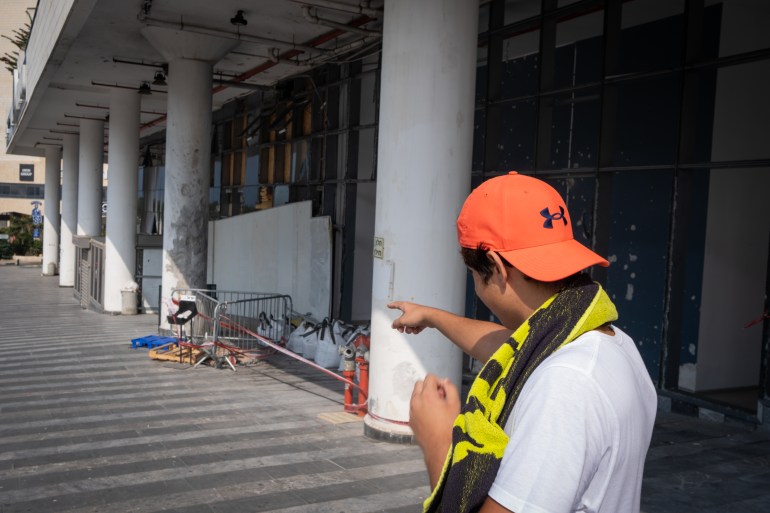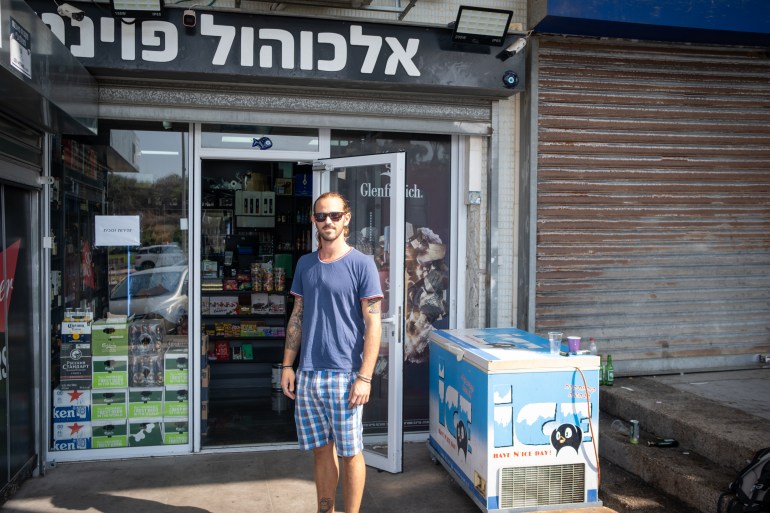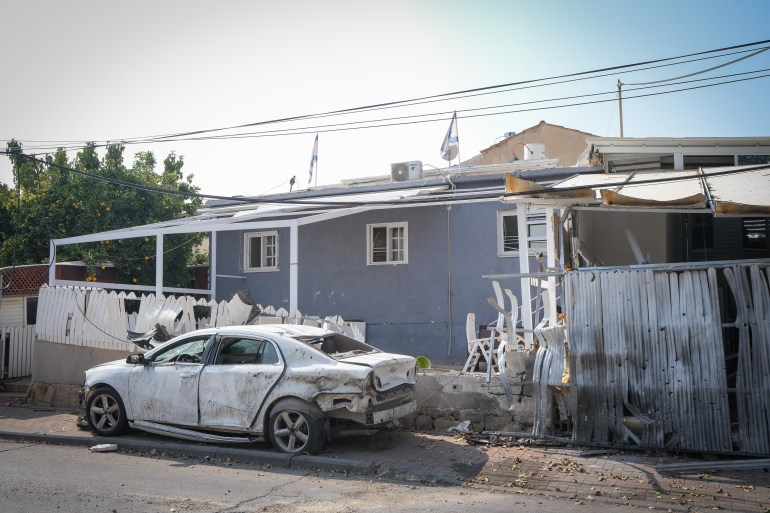In city of Ashkelon, in southern Israel, locals speak of the constant sound of aerial attacks on the nearby Gaza Strip.
Overnight, Israel launched large-scale ground operations in Gaza, severed the communications networks and widened its air attacks on the enclave.
Relentless overnight bombardment of Gaza
Noam Negoi, a 17-year-old who grew up in the city, says he has grown used to the sound of rockets over the years, but that the current war between Israel and Hamas is “something else”.

“Last night, Israel attacked Gaza very hard,” he says, adding the overnight bombing was nothing he had “ever experienced before”.
“It was all night; the Israeli military attacked there [Gaza] like crazy”.
Barely a second passes without the sound of an explosion filling the air.
“We used to have sirens 15-16 times a day”, Pol Sheiman, a local store owner, tells Al Jazeera, “but now there is less as the [Israeli] army is going into Gaza”.
With the city situated about 12 kilometres (eight miles) from the Gaza Strip, locals only have a matter of seconds to run to a bomb shelter if there is a rocket attack.
Sheiman always has his keys in the shop doors so he can run to the bomb shelter in time: There are no buildings between his store and the border with Gaza, and the direct line of sight adds to his sense of vulnerability.
But now, Sheiman says, pointing at the sky where an Israeli military helicopter hovers in front of a deep blue sky, “most of the noises are the sounds of missiles going towards Gaza, not coming to Ashkelon”.

He admits that he is scared by the current war and the endless thunderous booms in the distance: “I am scared. I have nightmares in the night”.
Katrin Varshavski, a 25-year-old out walking her dog, says many of the residents of Ashkelon are afraid. “Last night, we had three rockets come towards us. I think till the end [of the war], I will be afraid.”
Marina Maslova, a 41-year-old originally from Ukraine, says she watched the overnight aerial bombardment from a seaside marina that juts out along the scenic sandy beaches. She says she sat looking over the horizon towards Gaza, “watching the sky light up with flashes”.
Sheiman estimates that approximately 20,000 remain in the city, which is usually home to approximately 130,000 people and a thriving tourism industry.
Now, along its long sandy beaches sits an empty bar with two police cars standing guard. Over the water towards Gaza, Israeli navy vehicles can be seen floating stationary, in the distance.
Shifting views on relations with Gaza
Becky, a 36-year-old engineer who moved to Ashkelon from the nearby city of Ashdod four years ago and preferred not to give her last name, said that before October 7, she had known, and spoken with many people who would come to the city.
“We understand Arabs could come here from Gaza; we are here, and we have to co-exist.”
She said previous conflicts between Israel and Gaza had not affected the personal opinion people had of civilians who came from the strip to work in the area.

Danielle, a 22-year-old who did not want to share her last name, says the attack on October 7, which killed more than 1,400 people, has now altered how she perceives the 2.3 million who live in the densely populated enclave.
“After October 7, people who believed in peace don’t really any more,” she says. “It became personal”.
